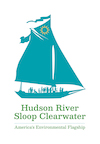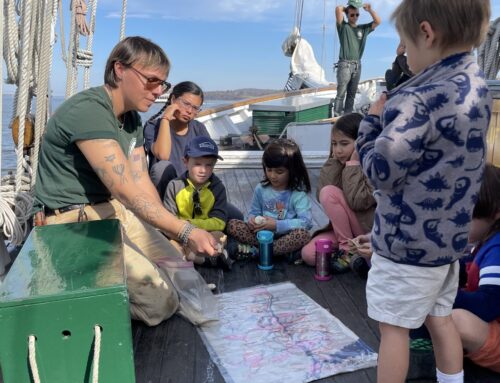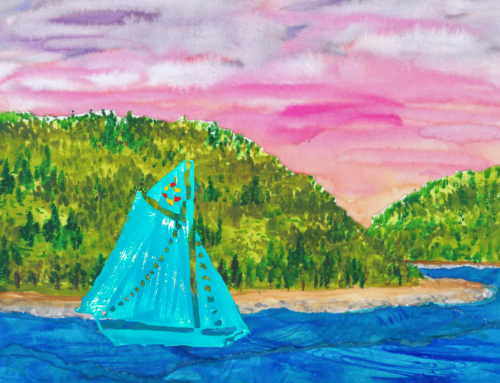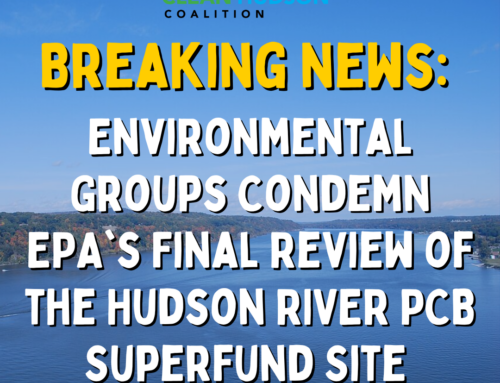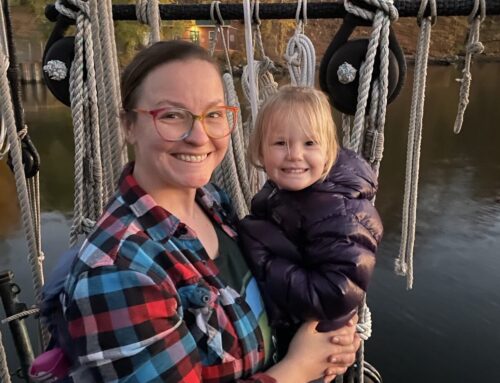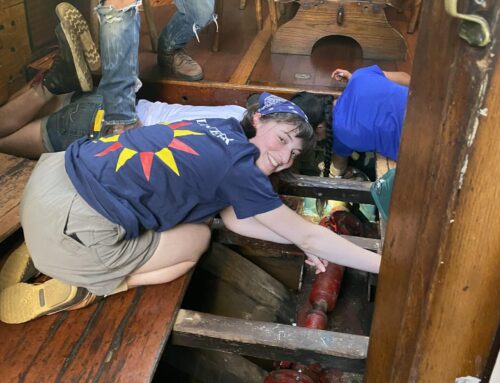Comments submitted by Betsy Garthwaite
Representing Hudson River Sloop Clearwater, Inc.
Presented at the Public Hearing on Wednesday, October 19th, 2016.
Good evening. My name is Betsy Garthwaite, and I would like to thank Senator
Terrence Murphy for inviting me to speak here tonight. I am the President of the
Board of Directors of Hudson River Sloop Clearwater, and I am also a former captain of
the sloop Clearwater. And for the record, as a United States Coast Guard licensed
captain, I have a deep respect for other maritime professionals and their concerns
about safety.
As most everyone knows, the sloop Clearwater was the brainchild of the late folk
singer Pete Seeger. Pete had an idea to build a replica of the old Hudson River sailing
vessels of the 18th and 19th centuries, not just as a nod to the valley’s maritime history,
but as a way to focus people’s attention on, what was then, a very polluted Hudson
River. And Pete’s scheme worked. That first summer, in 1969, the sloop attracted
many thousands of people in waterfront communities up and down the river.
Today, nearly 50 years after Clearwater first sailed up the Hudson, the river is
noticeably cleaner. No one environmental organization, no one piece of clean water
legislation, no one lawsuit can take credit for cleaning up the Hudson. It took many
organizations and government leaders and concerned citizens coming together and
working toward a common goal. And because of the efforts of people decades ago and
the ongoing efforts of people today, we live in one of the most beautiful regions in
these United States.
The Hudson is no longer a place that people avoid; rather, people flock to it. They
swim in the river, go fishing in the river, they canoe, kayak, and windsurf. They dine
along the river’s edge. You name it. Just about any recreational activity that can be
done on the water, or next to the water, is happening up and down the Hudson. Today,
tourism is a multi-billion dollar industry here in the Valley, and it is growing with
every year.
But now the maritime industry has requested 10 additional federally-designated
anchorages between Yonkers and Kingston, with a total capacity for up to 43 vessels.
By its own admission (letter to the USCG, dated 1/21/16, from The Maritime
Association of the Port of NY/NJ), this request is being made due to the anticipated
increase in traffic of Bakken crude oil on the Hudson after the lifting of the crude-oil
export ban last December. Our communities will be assuming a huge amount of risk –
with the promise of little to no reward – from the increase in shipments of crude oil,
which unlike the home heating oil that is transported upriver each winter, is not
intended for our consumption. This oil will be headed overseas.
I believe that the Hudson River is New York State’s greatest natural resource. And the
Hudson has always had value to the people of New York and New Jersey as a shipping
route. But those interests have got to be balanced with the many other interests that
we, as residents of the valley, also hold dear and depend on. I believe that additional
anchorages are not in the best interests of Hudson Valley residents, and, on behalf of
Clearwater, I am asking the Coast Guard for a full Environmental Impact Statement.
In February 1977, the barge Ethel H. ran aground on Con Hook Rock north of Bear
Mtn., spilling 420,000 gallons of “heavy” oil into the river. To this day, it is the largest
single crude oil spill to occur in the river north of New York Harbor. An emergency
bird cleaning center was set up at a highway department building at Stony Point, and
for 10 days, a round-the- clock effort by volunteers and professionals cared for
captured birds. Early attempts at using dish detergent to clean the birds proved
ineffective. A solvent made by the Shell Oil Company was then used for the bird-
cleaning effort which required cleaners to don suits, gloves and respirators. Although
the Coast Guard responded to the spill with a 300-person team, by their own estimate,
they recovered less than 25% of the oil spilled. Of the hundreds or even thousands of
birds that may have been contaminated, just 50 were captured and one third of them
did not survive. This is a stark reminder that nearly 40 years later, our ability to clean
up spills and save wildlife has not improved greatly.
We can put a price on the value of a tanker full of crude oil. We can also put a price on
the cost of an oil spill clean-up and the resulting economic damage. These spills may
be uncommon, in part, thanks to the professionalism of the Hudson River Pilots and
the tug and barge captains and crew. But they do happen. And, make no mistake; oil
companies consider such spills part of the cost of doing business. There is one thing,
however, that we can’t put a price tag on, and that’s the quality of life we enjoy here in
the Hudson Valley today. And I believe that quality of life is worth protecting.
Thank you very much.
